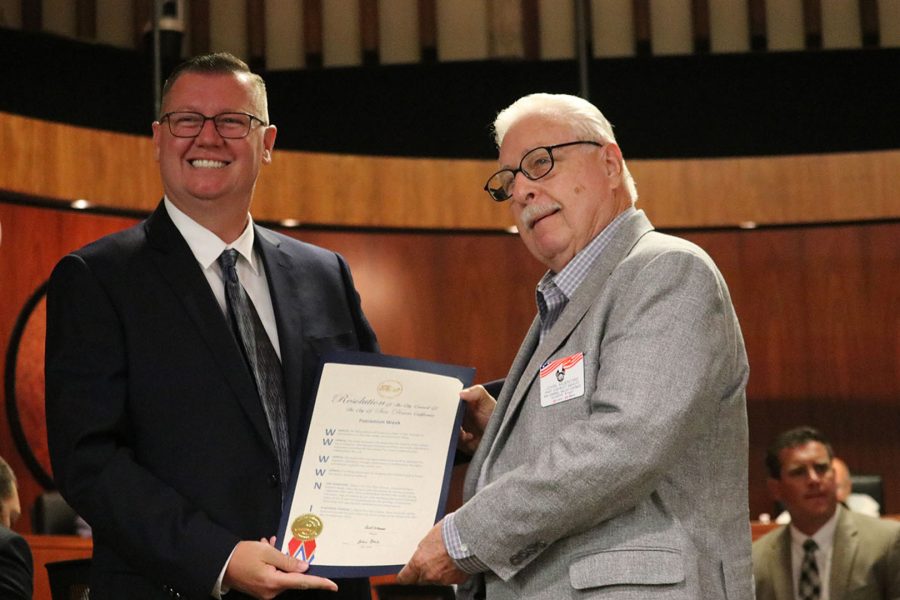The San Dimas City Council approved an item that provides $300,000 to the Golden State Water Company to repair 98 water service laterals, the pipes used to transport water from homes to city sanitary sewer systems in the street, on Sept. 10.
This decision was made because of the Avenida Entrada Street Improvement Project, which needs the streets paved in order to move forward. Without replacing the leaking laterals, the project’s efficiency and longevity would be affected.
As a result, the replacement of the laterals will cause a delay of five weeks after approval. This pushes the completion of the project to mid-November, and the $300,000 provided by the city will later be reimbursed by the Golden State Water Company.
The council also approved a motion to adopt a new sports facility allocation policy that would raise fees to use facilities to non-resident groups.
Previously, the fee for non-resident groups was only a small portion more than those who are residents, but there have been claims made by residents stating the consistent use of the facilities has worn them down. The approval of this policy is expected to allow more time for repair, as well as increase the accessibility of these facilities to non-profit resident groups.
The council also approved Ordinance 1270 in a 4-1 vote, which allows the city manager to easily make purchases already approved by the budget by increasing the threshold to $50,000, rather than $15,000.
Council member John Ebiner disagreed with the ordinance because in comparison to local cities, the average budget rests at $25,000.
“I think the authorization levels should be a little less,” Ebiner said.
Council member Emmett Badar explained why he approved the motion and addressed resident concerns on the council’s efficiency.
“We need to make it easier for our staff to get the job done,” Badar said.
Before adjourning the meeting, council member Denis Bertone addressed council member Ryan Vienna’s seating arrangement.
“I think he should come back,” Bertone said. “If he does, I welcome him with open arms.”
This statement is made in regards to Vienna’s absence among the dais with his colleagues in disagreement upon a motion that would rearrange the seating of the council.
Vienna proposed the city mayor be seated next to all four council members, with the city manager and the city attorney at the end. Currently, the mayor sits between the city attorney and the city manager, splitting the council into two.
Vienna and Badar were on the losing side of the vote that occurred on July 9 that kept the dais the same, and Vienna began sitting among city staff on the floor on July 23.
He has since continued to address his concern with the current arrangement that has residents address council with city staff in between them, though a city staff survey of 31 other cities in the state found 10 of them have a similar configuration.
“Accountability and transparency, I think, is important,” Vienna said. “If I take some flack for standing up for those principles that I think we should have in local government, I’m more than willing to do it for as long as it takes.”


